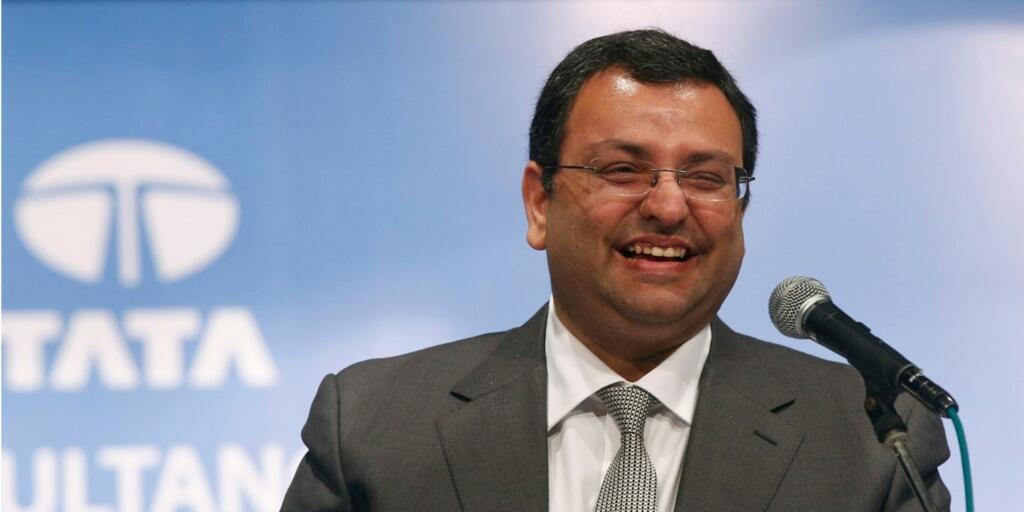People often think that being a rich man is easy. Nothing could be a bigger lie than that. After having a certain level of self-sustaining income, they get burdened with creating a long-lasting legacy of their own. The path is not easy as it is filled with previously unforeseen challenges. In the business domain, these challenges take the shape of controversies. Somehow someone like Cyrus Mistry, who stayed away from the limelight was not untouched from all of this.
Efficient in handling his family’s firm
Cyrus Mistry was born on 4 July 1968 to a Parsi family in Bombay, Maharashtra. His father Pallonji Mistry was a construction sector behemoth and mother was an Irish citizen. Later his father also became Irish. Firstly, he aspired to become civil engineer and Studied the subject at the University of London. In 1991, a year later after he got his engineering degree, Mistry joined the family construction company, Shapoorji Pallonji & Co. Ltd as a Director.
5 years later he was awarded with an International Executive Masters degree in management from the University of London. Studies did not impact his role as Director of a Construction company. He changed the company from only construction to design and build complex projects in marine, oil and gas and rail sectors. Cyrus oversaw development of India’s largest biotech park near Hyderabad. Under him Shapoorji Pallonji & Co. Ltd also entered into agriculture and biofuels.
Appointment as chairman of TATA
While managing his own company, Cyrus also found time to handle the Directorship of Tata Elxsi. While Cyrus was busy achieving greater heights, Ratan TATA was looking for an heir since his retirement days were nearing. Although both Cyrus Mistry and Ratan TATA were related on family lines, TATA got to really observe him only after Cyrus joined the board of Tata Sons on 1 September 2006, a year after his father retired from it.
Watching him over the years, Ratan TATA got convinced that Cyrus could handle his responsibilities. In 2013, he was finally appointed as chairman of TATA Sons. The fact that Cyrus’ family owned 18.74 per cent stake in the company played a big role in convincing Ratan TATA about Mistry’s role. He gave him just one message, “Be your own man”.
Cyrus Mistry was a bit different
Cyrus Mistry followed it in letter and spirit. He was comparatively quite young for a chairman and it started to reflect in his decisions. Under Ratan TATA, the company was known for its quite liberal and accommodating stances on issues involving profits and long-term business commitments.
For instance, Tata Consultancy Services is often referred to as a “government job of the private sector” for taking good care of its employees, something which is not a norm in the corporate world.
Cyrus saw lots of these kinds of decisions as denting the company’s prospects. He started to get rid of various projects initiated by Ratan TATA.
Shut down NANO
While the TATA Nano car was getting good media attention, it was a loss-making deal for the company. Mistry wanted to shut it down as he did not want loss because of NANO to exceed beyond 1000 crores. But it was not acceptable to Ratan TATA. However business acumen did not suit the likeness of Nano by Ratan TATA and that is why Cyrus called board’s decision to not shut Nano an emotional one.
Docomo, British Steel and Renewables-Few unpopular decisions
Cyrus was also apprehensive of projects like TATA DOCOMO, BRITISH STEEL and AIR ASIA. In the case of the deal between Japanese Docomo and TATA, the matter was complicated by regulatory instructions from financial authorities. However, the way Cyrus was handling it was not acceptable to Ratan TATA.
The differences got more intense in the case of British Steel. Cyrus wanted to minimize Company’s risk in the UK and so he made a tough decision to sell a loss-making enterprise. Once again the decision was unpopular which was reflected in hailing Ratan TATA as a savior after he made a commitment to invest one billion pound in the steel sector of Britain. Similar controversies also arose when Cyrus pitched for getting out of Loss-making AirAsia.
By that time the board had started to go against chairman Cyrus Mistry. The board was now getting with Ratan TATA’s loyalists. But Mistry’s business sense did not deter. He went on to buy Welspun Renewables Energy for Rs 9249 crores. Interestingly the board of Directors were not even informed. The unpopularity among board members kept growing and they voted to oust him from the chairmanship on 24th October 2016, few months before renewal of his contract.
Fought for his dignity
The unceremonious sacking did not go down well with Cyrus. He took the matter to the Courts which NCLAT decided in his favor. Later, the Supreme Court ruled in TATA group’s favor for which Ratan TATA even thanked them. But the Court case ended up exposing various dirty secrets hidden behind the polished image of the TATA group.
A MD quoted by Economic Times had said way back in 2016, “Our group chairman does his homework. And in a sense, he is really our group CFO; he is a solid numbers man. And that focus on numbers is backed by an ability to get on the ground, roll up his sleeves and get to the heart of the matter”
This was an apt tribute. His decisions were not based on sentiments. Cyrus was a man of pure numbers. His upside and downsides are debatable and so is his legacy for people falling on other ends of the spectrum.
Support TFI:
Support us to strengthen the ‘Right’ ideology of cultural nationalism by purchasing the best quality garments from TFI-STORE.COM
